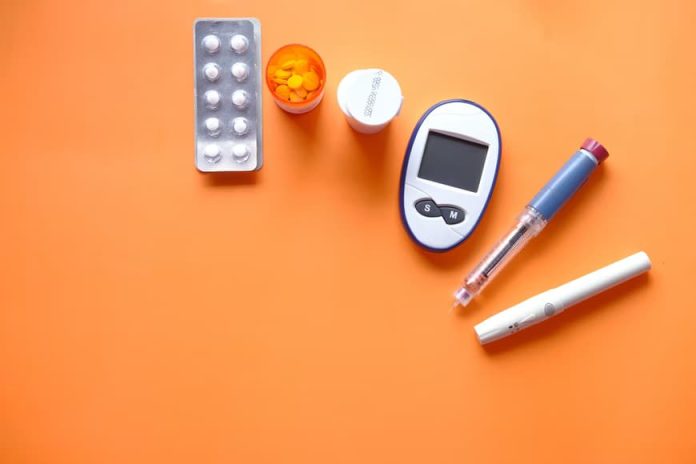Diabetes is a chronic disease characterized by high levels of blood sugar (glucose) in the body. This occurs when there is insufficient production or ineffective use of insulin. Insulin permits cells to take up glucose, which is used for energy. The causes of diabetes are varied and complex, they can be classified into three broad categories, the first two of which are still not fully understood. They include hereditary factors, environmental influences, and autoimmune reactions against the pancreas.
The treatment of diabetes must be tailored to each case. One size certainly does not fit all when it comes to this disease. Therefore, it is important to have a clear understanding of its causes and risk factors. It is also important to know how to prevent diabetes from happening or re-occurring after recovery. In this article, we shall look at some of the most common causes of diabetes, and explain how to prevent them.
Table of Contents
Excessive Carbohydrate Intake
Eating too many carbohydrates is another leading cause of diabetes. If you eat more carbohydrates than your body can use, the excess is stored in fat cells or in muscles where it’s used for energy. According to professionals from DiaBettr, one type of fat called ceramides, plays a big role in the onset of diabetes. It also disrupts insulin production by blocking the hormone signal in your cells. This is one of the main reasons why obesity is thought to be a major risk factor in developing diabetes.
A diet high in refined carbohydrates (foods that are low in fiber and nutrients) like white bread, pasta, rice, cakes, etc., can lead to blood sugar levels being constantly too high. Other foods with high glycemic indexes which are known to interfere with insulin metabolism are also considered bad news when it comes to diabetes prevention.
Inadequate Calorie Intake
One of the leading causes of diabetes is inadequate calorie intake. Simply put, this means that a person does not eat enough to maintain an adequate level of nutrients in their body. This can also be due to the large consumption of carbohydrates without a balancing calorie intake from protein and fat sources.
A substantial drop in the number of calories consumed by someone every day could result in malnutrition and eventual starvation. When combined with an overall sedentary lifestyle, it becomes much easier for glucose levels to get out of balance and lead to diabetes. Even eating too little food or eating irregularly can cause blood sugar imbalances which increase susceptibility to type 2 diabetes.
Lack of Physical Activity
Regular physical activity helps maintain stable glucose levels by promoting insulin sensitivity. In other words, when you exercise regularly your body needs less insulin to do the same job of transporting glucose from your bloodstream into cells for energy. What this means is that more glucose remains in circulation and is available to meet your body’s energy demands.
However, if you have a sedentary lifestyle, it causes a reduction in the number of muscles being used to aid the transportation of glucose. This is one of the main causes of diabetes since muscles help regulate blood sugar levels by accepting or rejecting insulin. Inactivity not only increases the risk of developing type 2 diabetes but also contributes towards worsening existing cases because muscle loss can lead to higher blood sugar levels and complications such as cardiovascular disease and nerve damage (neuropathy).
Hereditary Factors
Hereditary factors are another leading cause of diabetes. While this is something that cannot be prevented, it can be identified and monitored through genetic screening. According to recent research, five genes have been discovered that increase the risk of type 2 diabetes by as much as 80%. If one or both parents has type 2 diabetes, you are at a higher risk of developing the disease yourself because these genes are passed on from generation to generation. However, being physically active and maintaining an appropriate body weight remains your best defense against hereditary cases of diabetes.
Sex Hormones
Being of either sex can increase your risk of developing diabetes. According to the World Health Organization (WHO), women are twice as likely to develop type 2 diabetes than men. One study found that estrogens, the female sex hormones, interfere with insulin production and activity. This makes it much easier for glucose levels in the blood to get out of control which leads to higher chances of developing type 2 diabetes in women once they are past their childbearing years.
Other Illnesses & Condition
Any other chronic illness or condition can cause blood sugar levels in your body to fluctuate thus increasing your risk of becoming diabetic. These health problems include gall bladder disease, pancreatic cancer, multiple sclerosis, endocrine disorders, chronic infections, and congenital malformations of the pancreas.
Prolonged exposure to high blood sugar is a condition known as hyperglycemia which can cause various health problems, including blindness, nerve damage (neuropathy), and gangrene of the limbs. This is why it’s important to see your doctor immediately if you experience any symptoms of diabetes. If diagnosed early enough, you could prevent or delay the development of serious complications by closely monitoring your glucose levels and sticking to a healthy diet and active lifestyle.
Early recognition goes a long way towards preventing serious complications from developing but only when the appropriate precautions have been taken in time. Since diabetes can be passed on genetically it has become even more critical for younger generations to keep a check on their health. So if you have a history of diabetes in your family, it’s advisable to have yourself checked regularly for early signs of this disease. This way you can significantly reduce your risk of developing any complications and make the necessary lifestyle changes to prevent diabetes.




